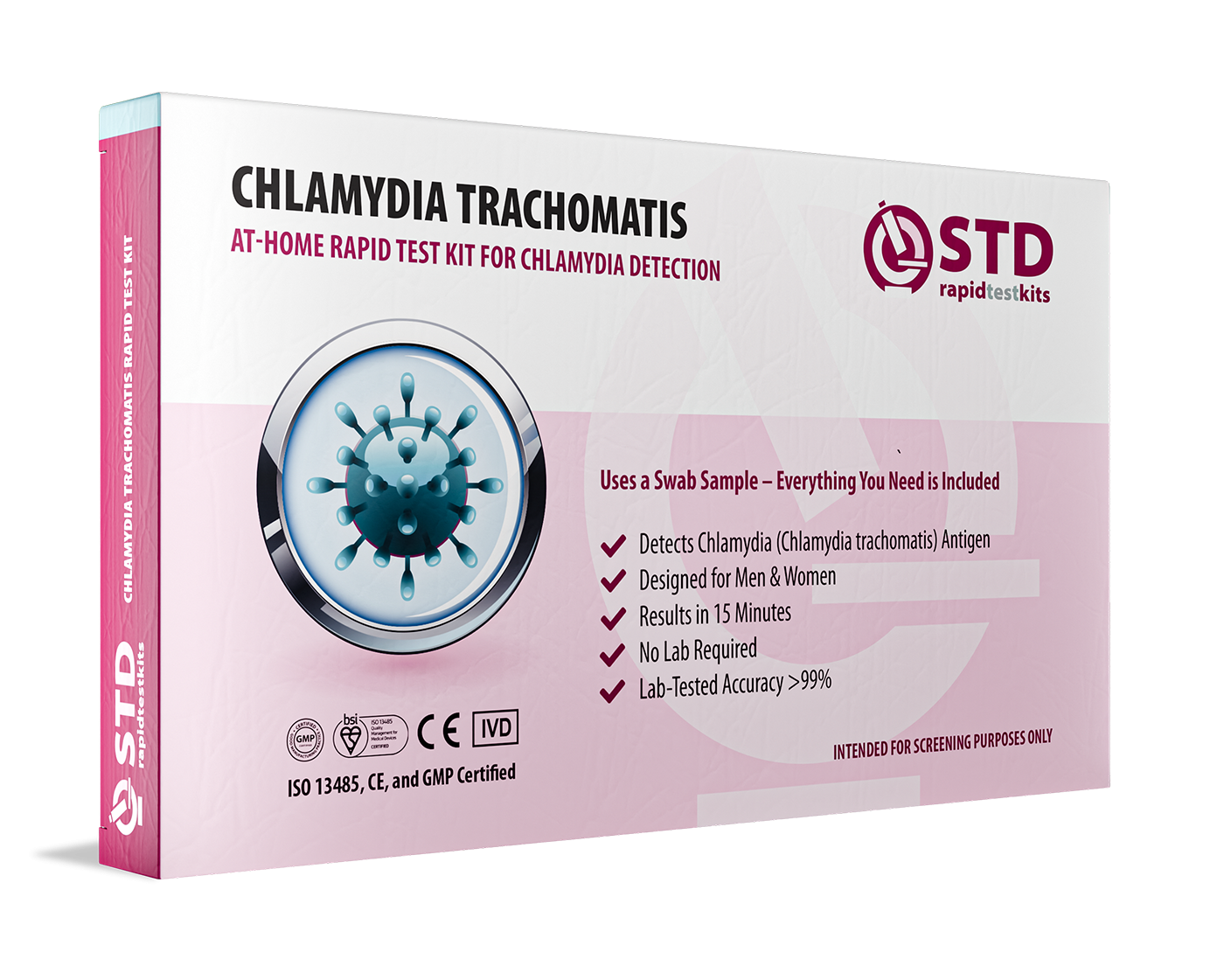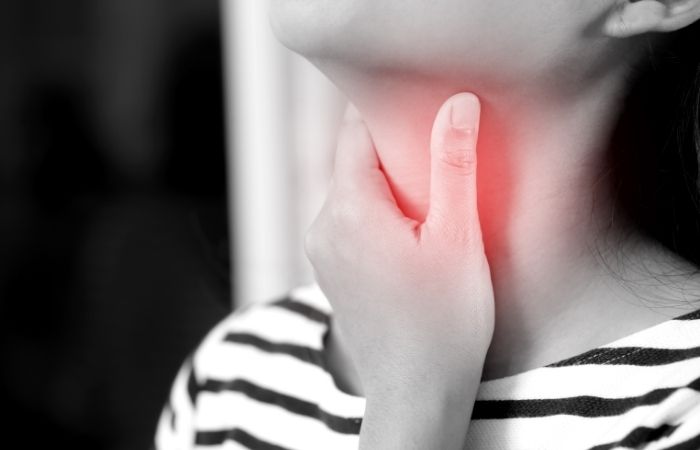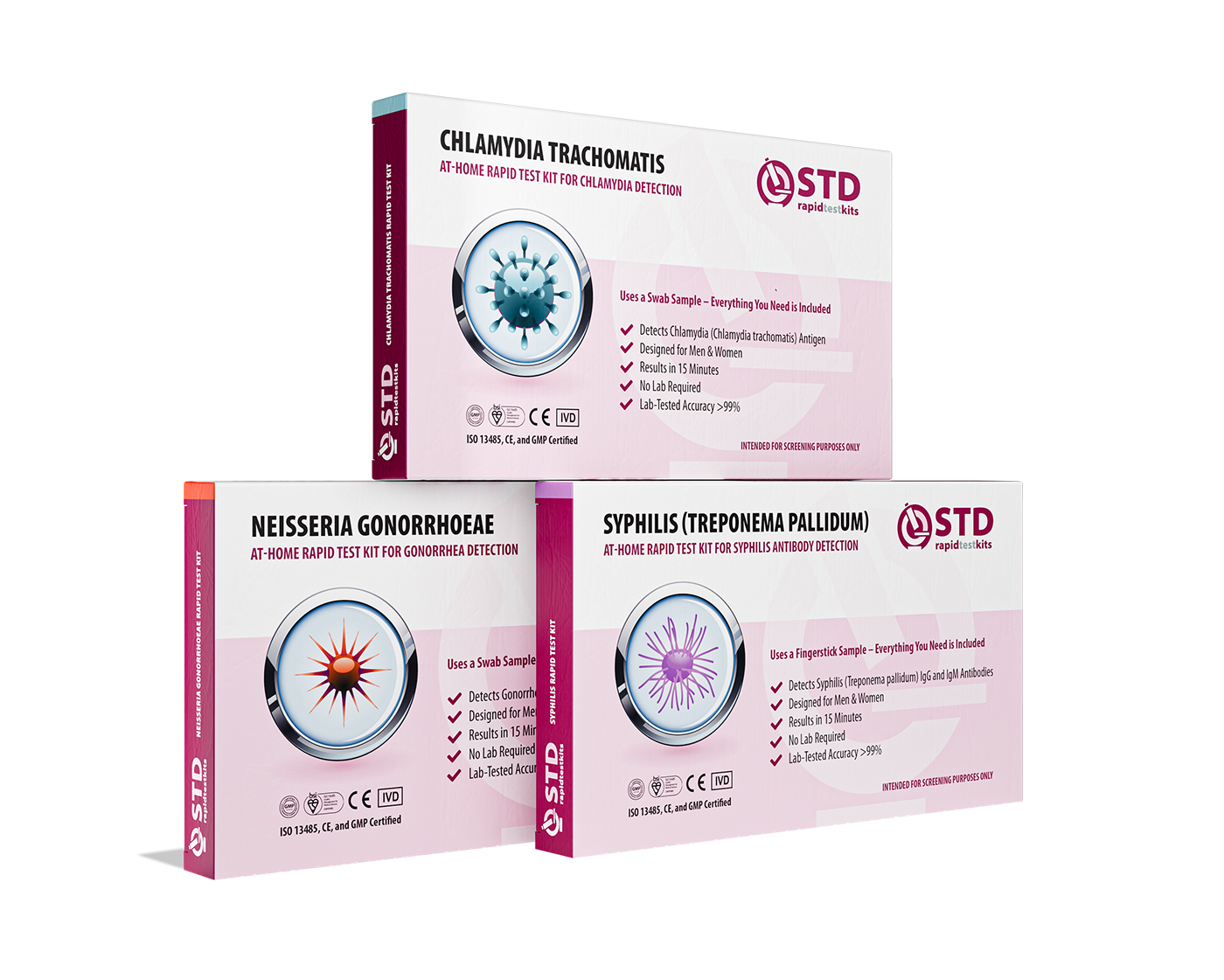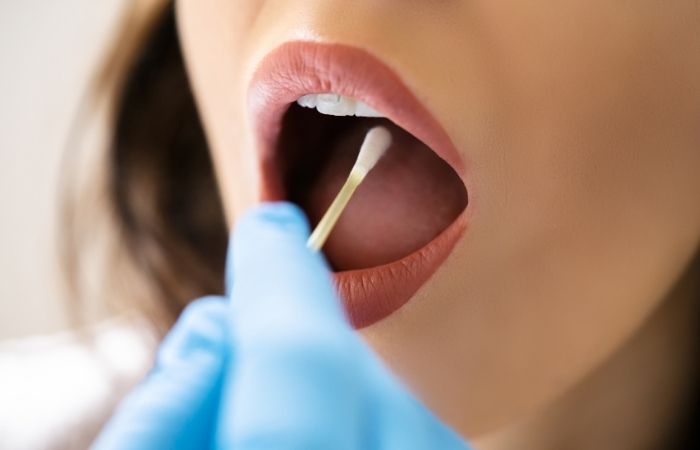Should You Test for Everything? Full STD Panel vs Single Tests Explained
Transmission of Chlamydia Virus via Oral Sexual Interactions
Chlamydia infection is caused by the bacterium Chlamydia trachomatis and can infect the rectum, genitalia, and throat. Infected sperm fluid, vaginal or sperm fluid, or pre-ejaculate can infect mucous membranes and spread the infection. Indeed, chlamydia may be transmitted through means of:
- Having sex with someone who has genital chlamydia
- Transmission by oral sex with an infected person
- Infected saliva that has contact with sensitive vaginal tissues
It is possible to transmit oral chlamydia to one's partner even when asymptomatic. Because pharyngeal chlamydia infections are commonly mistaken for less severe throat infections or have no apparent symptoms, many infections go undiagnosed.

Oral Chlamydia: How Common is It?
Recent research has shown that pharyngeal chlamydia is more common than previously thought, especially in sexually active heterosexuals who engage in unprotected oral sex.
Five to ten percent of MSM tested for oral chlamydia were found to be positive in a 2023 study published in Sexually Transmitted Infections.
Oral chlamydia was also found among 1-3 percent of heterosexuals.
Individuals who are using condoms in an inconsistent manner or those who have more than one sex partner increase the risk considerably.
Oral chlamydia continues to spread because most individuals don't undergo a test for it, though these facts are certain.
Order Now $33.99 $49.00 Check Your STD Status in Minutes
Test at Home with Remedium
Chlamydia Test Kit




Throat Chlamydia Symptoms
That oral chlamydia is usually symptom-free is perhaps its biggest drawback. When and if symptoms are present, they may be vague or confused with a common cold. Here are some of the most common symptoms:
- Coughing up a persistent scratchy throat
- Sore or red throat
- Flu-like or mild temperature-like symptoms
- Swollen lymph nodes located in the neck
- A sore throat or swallowing problem
Most people do not have themselves tested for the infection because its symptoms are indistinguishable from those of other minor infections, for instance, strep throat or a common cold.
Expert Opinion on the Symptoms of Oral Chlamydia
"A lot of patients perceive a sore throat as no big deal, but chronic throat discomfort following unprotected oral sex is not something to disregard," says infectious diseases specialist Dr. Lisa Carter, stressing the need for immediate testing. Get tested for sexually transmitted infections (STIs) like chlamydia if you have been recently exposed.
Possible Side Effects and Risks of Oral Chlamydia
Infections of the neck with chlamydia are still dangerous, though they are less likely to produce serious complications than infections of the vaginal area. Possible issues may arise, such as:
- Having chlamydia that hasn't been treated raises the odds of contracting other sexually transmitted infections, such as gonorrhea and HIV.
- Autoinoculation, or germs traveling from one region of the body to another, is one way untreated oral chlamydia can be spread to other regions of the body, like the vagina.
- Ongoing Transmission: A person infected with chlamydia might transmit it unknowingly to his/her partner, particularly if they do not exhibit any symptoms themselves.
Researchers have also shown that bacterial survival rates in the neck are different from the rest of the body, and this could make pharyngeal chlamydia treatment with regular antibiotics more difficult.

A Case Study on Chlamydia Misdiagnosis
The American Journal of Sexual Health has conducted a survey on fifty undiagnosed cases of chlamydia of the mouth. Forty percent of patients had prior experiences of being wrongfully diagnosed as having strep throat and viral pharyngitis before actually testing positive for chlamydia. In case one has symptoms long after having had unprotected oral intercourse, it would be wise to have specialist STI testing.
Treatment for Chlamydia in the Mouth
With proper medication, chlamydia is curable. Two of the most frequently used medications are azithromycin (a one-time dose) and doxycycline (one course of seven days).
- In case of avoiding reinfection, sexual intercourse must be avoided for at least 7 days after treatment.
- To stop the transmission cycle, the sexual partners need to be screened and treated as well.
"Everyone believes a sore throat will go away on its own, but if there is a possibility of exposure to STI, only a laboratory test can exclude or confirm chlamydia," says sexual health expert Dr. Marcus Lee, cautioning against self-diagnosis. Transmission to others becomes increasingly likely as treatment is postponed.
Order Now $69.00 $147.00 Check Your STD Status in Minutes
Test at Home with Remedium
3-in-1 STD Test Kit




For all 3 tests
Common Mistakes About Chlamydia and Oral Sex
Most people incorrectly perceive the risk of oral sex and chlamydia. The following are the explanations for some of the most common myths, with corroborating evidence to lay them to rest.
Myth No. 1: Chlamydia Is Genital Only.
It is possible that chlamydia infects not just the genitourinary tract, but also the eyes, the rectum, and the throat. Bacteria contact with mucosal membranes is actually responsible for oral transmission.
Myth No. 2: Oral Sex Does not Transfer Chlamydia.
While it is not necessarily always the case, it can happen that the infected person spreads the disease onto the genital area of the other person.
Myth No. 3: A Sore Throat After Oral Sex is Just a Cold
Chlamydia orally is pretty prevalent, yet anyone with constant pain in their throat, most particularly after an unprotected oral act, must seek an STI test.
Myth No. 4: Symptoms of Chlamydia Are Obvious.
A majority of cases of chlamydia bring no visible signs of infection for the infected.
Myth No. 5: Chlamydia Heals by Itself.
This is not the case with chlamydia. Risk of bacterial persistence and transmission persists despite the resolution of symptoms.

Prevention and Minimizing Risk
Prevention is better than cure as far as chlamydia is involved. The following may be done in order to decrease the risk of getting or spreading oral chlamydia:
- Set Up Obstacles: Wearing a dental dam or condom during oral sex can go a long way in minimizing the risk of infection.
- Test Often: Always test for sexually transmitted diseases (STDs), but do it more often if you have more than one sex partner or if you have unprotected sex. Because there are no symptoms, most chlamydia infections go undetected.
- Cut Down on Sexual Partners: A reduction in contact risk is felt through having fewer than one might otherwise.
- Do Not Have Sex If Either You or Your Partner Has Symptoms: Have sex no more and seek medical attention if either you or your partner develops unfamiliar pain in your throat.
- Encourage Partner Screening: By engaging in candid discussions with one's partners on STI testing, one may help avert the transmission of sexually transmitted illnesses.
Everyone thinks that chlamydia is all about the genitalia, but oral infection is a real issue, says public health doctor Dr. Emily Rhodes, emphasizing the need for early diagnosis. Risk of infection can be reduced by regular checks and the use of protection.
Order Now $149.00 $392.00 Check Your STD Status in Minutes
Test at Home with Remedium
8-in-1 STD Test Kit




For all 8 tests
FAQs
1.- Is there a chance to get chlamydia while kissing?
Kissing, drinking, or hugging are not forms of casual contact that may spread chlamydia. Direct contact of infected body fluids with mucous membranes is the mechanism of transmission.
2.- Can oral chlamydia be detected using a standard STD test?
Yes, in some cases. Oral chlamydia is not typically checked for by standard STI testing, unless specifically requested. If you have had unprotected oral sex, get a throat swab test.
3.- When will I be ill?
If symptoms do occur, they typically appear within one to three weeks after exposure. But many individuals never even realize that they are infected.
4.- Can one get chlamydia from oral sex with an asymptomatic partner?
Yes. Anyone can infect others with the virus, even if they themselves are not sick. This means that they need to keep getting tested frequently, even when they don't have symptoms.
5.- Would oral chlamydia be harmful?
Un-treated chlamydia could cause consequences such as long-term infection, passing the infection along to others, and higher risks of other STIs like HIV, although it is not a fatal disease.
6.- How long is the average oral chlamydia treatment time?
Oral chlamydia can usually be treated in 7-10 days using proper medications like azithromycin or doxycycline.
7.- Can re-infection happen after being treated?
Yes. Anyone can get re-infected with chlamydia if the other partner does not get treated. It is best to treat both partners at the same time for that purpose.
8.- How do you differentiate oral chlamydia from a regular sore throat?
One can only obtain a positive response through a test. A chlamydia throat swab test is something to be considered if you have been involved in unprotected oral sex and end up having a sore throat all the time.
9.- Are oral chlamydia treated using the same medication that treats genital chlamydia?
The same antibiotics work against both oral and genital infections; however, for oral infections, doxycycline may be a bit more effective than azithromycin.
10.- Can I check if I have oral chlamydia at home?
Yes. Detection of oral chlamydia with a basic throat swab is now a component of most home STD test kits. Easy and discreet testing from home is now available.

Ensure Your Sexual Well-being
It is simple to recall that chlamydia is spread orally, although it is a prevalent and curable illness. Because it does not have any symptoms, many people have oral chlamydia and transmit it unconsciously.
Testing is required for any person who has had unprotected oral sex or has had symptoms in the throat after exposure. To receive treatment early and prevent complications, at-home STD testing kits provide a private and reliable method to confirm your status.
Consider being tested today if you've got symptoms after unprotected oral sex. The best protection for your health is finding trouble before it turns into trouble. Empower yourself sexually with discreet home STD testing kits providing confidential results at your speed.
You and your partners are better protected against sexually transmitted diseases (STIs) when you practice preventive care, such as being screened regularly, having protection, and enhancing partner knowledge.
Sources
1.- Mayo Clinic: Chlamydia trachomatis - Symptoms and causes
2.- MedlinePlus: Chlamydia Infections
4.- NCBI Bookshelf: Chlamydia - StatPearls
5.- PubMed Central: Pharyngeal Chlamydia trachomatis is not uncommon any more










